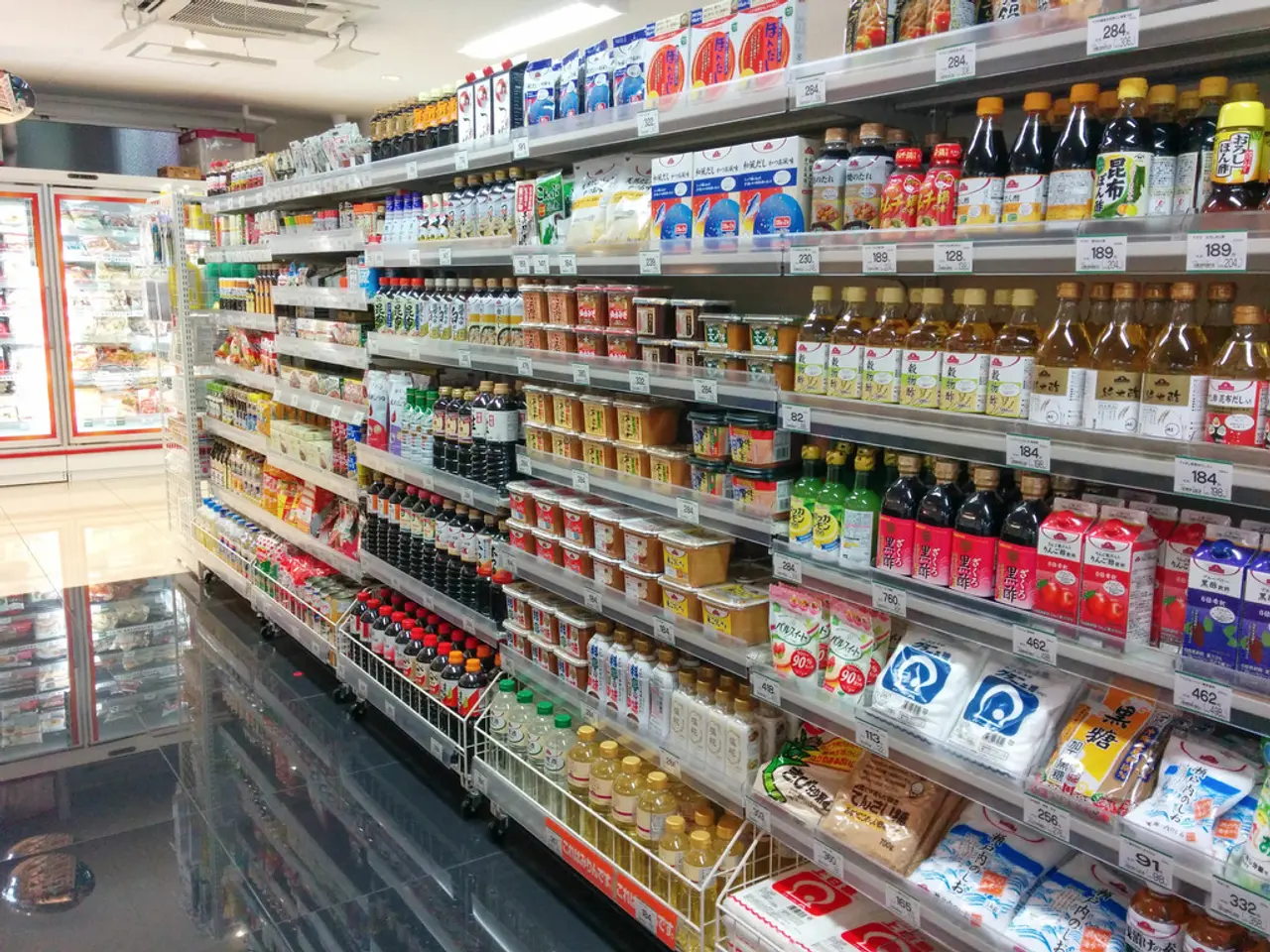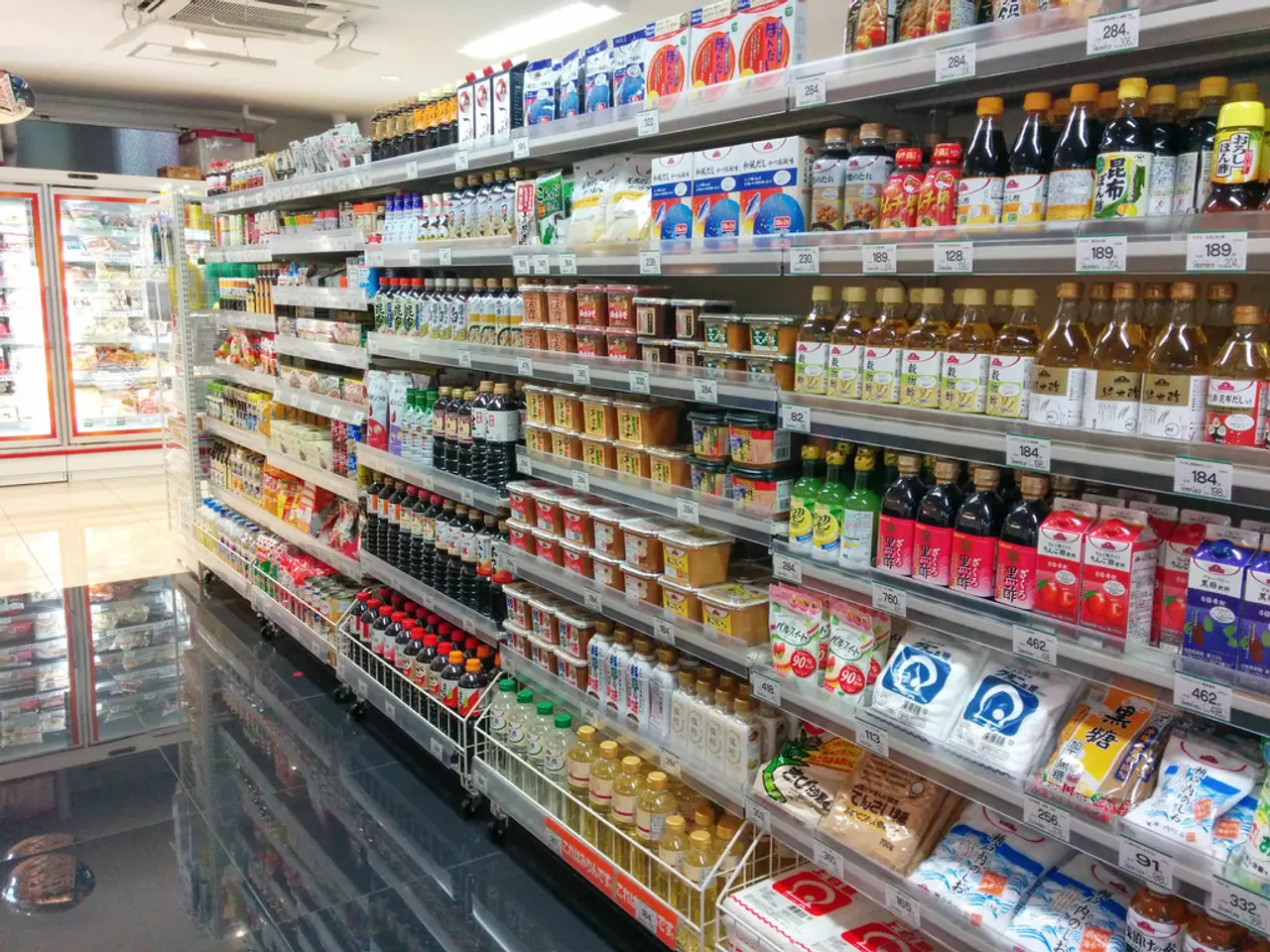Southern California-based Indian corporations face increased costs as tariffs rise by a quarter, causing business expenses to escalate daily.
The United States' decision to impose a 25% tariff on Indian goods has caused significant disruption for businesses in the Los Angeles area, particularly those that rely on importing Indian products.
Starting August 1, the tariff will affect several sectors, including pharmaceuticals, jewelry, textiles, spices, and food products, among others. This abrupt increase in duty, along with additional penalties, has raised alarm among Indian exporters and US importers alike.
The tariff has led to concerns about increased costs, order cancellations, and supply chain disruptions for local businesses that sell or use Indian goods. For instance, Sneh Prasad, the owner of Bollywood Styles, has seen recent sales dip to the lowest levels in roughly 18 years. Similarly, Devraj Keray, the owner of Pioneer Cash & Carry, one of the largest Indian grocery stores in California, has been notified that prices will go up 25% effective Monday.
The tariff is described as one of the toughest trade actions against India, signaling a shift in trade dynamics that could severely impact Indian exports and downstream US businesses that depend on them. Local businesses may have to either absorb higher costs, pass them on to customers, reduce Indian-sourced inventory, or find alternative suppliers, affecting local commerce and consumer choice.
The trade deficit with India was $45.7 billion last year, up more than 5% from 2023. Despite this, President Trump maintains that tariffs will "strengthen the international economic position" of the United States and protect American workers. However, the impact on local businesses in Los Angeles is a cause for concern.
The number of people reporting to work in the private sector in California has decreased by 3.1%, a downturn only recently matched by the COVID-19 lockdown. Many business owners have already seen foot traffic and sales slow down this summer, with some attributing it to possible immigration raids targeting businesses that attract primarily immigrant customers. The tariffs could exacerbate this trend, as Krutika Pranav, the manager at Highglow Jewelers, stated that the downturn could be because customers are afraid of possible immigration raids, and the tariffs will make it even worse.
Prashant "Peter" Patel, the president of the Indian American Business Assn. and Chamber, expressed general anxiety among Indian business leaders and hopes for a resolution soon. Dalbir Singh Ghotra, the owner of Kavita Grocery, stated that the tariff would "spell disaster for small businesses like us."
As the tariff takes effect, local businesses are seeking urgent support and clarity on mitigation measures. The uncertainty surrounding the tariff's impact on price, profitability, and supply chain reliability is a concern for many. Keray, the owner of Pioneer Cash & Carry, compared the situation to a chess game, stating that it's a matter of how far it goes before the consumer becomes the victim.
- The potential economic repercussions of the tariff extend beyond Los Angeles, as several sectors across California may also experience disruptions due to increased costs and supply chain issues.
- The ongoing concerns about immigration raids targeting businesses with primary immigrant customers could be further compounded by the tariffs, potentially leading to a decrease in foot traffic and sales for such businesses.
- The political fallout from the tariff extends beyond the immediate impact on businesses, as it raises questions about the broader implications for US-India trade relations and the global economy.
- The tariff could negatively affect the general news narrative surrounding both local businesses and the broader economy, particularly in light of the ongoing COVID-19 pandemic and its impact on businesses across the state.
- The financial consequences of the tariff for small businesses like Kavita Grocery could be catastrophic, prompting urgent calls for supportive measures from business organizations such as the Indian American Business Assn. and Chamber.




